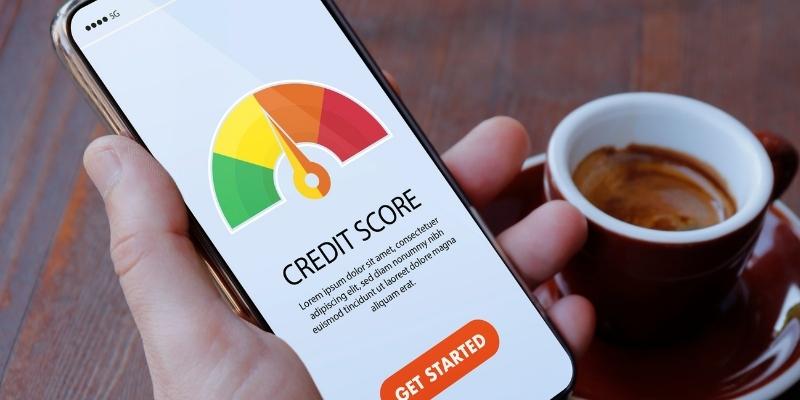Get to know how Do Checking Accounts Affect Your Credit Score?
Jan 01, 2024 By Triston Martin
A checking account is a type of account that may be used for day-to-day transactions and is considered a useful financial instrument. Your checking account money is easily accessible through various methods, such as debit card purchases, check writing, and visits to ATMs.
Having a checking account makes it easy to manage your finances, including making deposits, paying bills, and transferring money across accounts. Likely, having a bank account in and of itself won't impact your credit score; however, how you utilize that account could.
Watch out for overdrafts and stay on your payments to avoid getting in trouble. Remember that how you use your checking account right now may affect how easily you can open more bank accounts in the future. What kind of an impact do checking accounts have on credit scores? Learn more about it here.

How May Checking Account Affect Your Credit Score?
Consequences Of Overdue Payments
Most of us pay our bills with the money in our bank accounts. If you forget to mail those checks or there is a problem with the process, the late payment could make its way onto your credit report. It could happen either because you forgot or because there was a problem.
A big hit to your credit score could occur if your payment is so long past due that perhaps the account is given over to collections. Therefore, remember that you should exercise caution when mailing checks and always ensure that you have the funds in your checking account (or sufficient overdraft protection) to cover them.
ChexSystems
The undisputed leader in the debit bureau industry is ChexSystems; if you need a check validated or consumer research on a specialized market, there is no better place to turn than to them. Risk scores and other information about closed checking and savings accounts are provided here.
ChexSystems can report and maintain records of certain events, such as returned checks and overdraft fees, for as long as five years. If you wish to create a new checking or savings account, financial institutions will probably look at your ChexSystems report before permitting you. You may refuse access to future services if you have a history of conflict with the company.
Overdraft
It is an overdraft when you have spent more money than you currently have in your checking account. Since information on overdrafts is not normally reported to the credit bureaus, it will not directly impact your credit score. If despite your best efforts, the bill you were attempting to pay is sent to collections, this will harm your credit score.
The vast majority of financial institutions provide some form of overdraft protection, which ensures that practically all of the payments you make will be processed, even if they push your account balance into the negative region. Overdraft protection is offered by some banks for a service fee, while other banks provide overdraft protection in the form of a line of credit that is not subject to fees. If you pick the type of overdraft protection tied to a line of credit, this may have an impact on your credit score.
Changes In Credit Scores Caused By Soft And Hard Inquiries.
Inquiries made solely for learning about one's credit score or obtaining a copy of one's credit report are considered "soft" inquiries. Other sources of soft inquiries include promotional credit card offers and reviews of your existing loan accounts by the companies with which you already have an account. Lenders who check your credit record won't see soft queries or know that you've had them.
You can see them; they'll remain on your credit reports for anywhere from 12 to 24 months, depending on the kind. One alternative is the "hard" inquiry. Lenders check your credit report after you apply for a loan or credit card. Hard inquiries impact credit scores; however, when looking for a large purchase (such as a home or mortgage) and comparing interest rates, many are normally counted as a single query for a set period (usually 14 to 45 days).

The Advantages of Having a Checking Account
A checking account is an excellent tool for managing one's finances. Still, if one is to get the most out of their checking account, additional advantages will become available beyond simply having a protected location to keep one's discretionary funds.
Establish Your Credit
Opening a checking account for the first time won't have much of an effect on your credit report other than a possible drop caused by the query into your credit history. However, your checking account will be the basis for a good credit score. Lenders will see that you can be relied upon as a reputable borrower if you keep the same account for a significant amount of time.
Keep Up Your Relationship With Your Banking.
Make every effort to avoid moving back and forth between different checking accounts. To encourage customers to transfer financial institutions, banks frequently provide enticing deals. Nevertheless, opening and shutting an account an excessive number of times is a warning sign for lenders.
If you decide to shut down an existing checking account, it is important to do it amicably. Always clear up any outstanding debts before you leave. Credit reporting agencies are notified of any accounts with a negative balance.
Develop a Banking Relationship
One must initially make personal contact with a bank or credit union to open a checking account. It paves the way for providing more financial products and services, such as mortgages, investment opportunities, certificates of deposit, special savings accounts, and auto loans.
Conclusion:
How you manage your checking account can affect your creditworthiness, even if writing a check or using your debit card would not, in most cases, directly impact your credit score. Your credit score can be kept in good shape if you maintain solid banking practices and pay your payments on time. It, in turn, can help make your financial future a little bit brighter.

Dec 17, 2023 Triston Martin

Dec 17, 2023 Triston Martin

Dec 18, 2023 Susan Kelly

Dec 09, 2023 Triston Martin

Nov 18, 2023 Triston Martin
Nov 15, 2024 Triston Martin